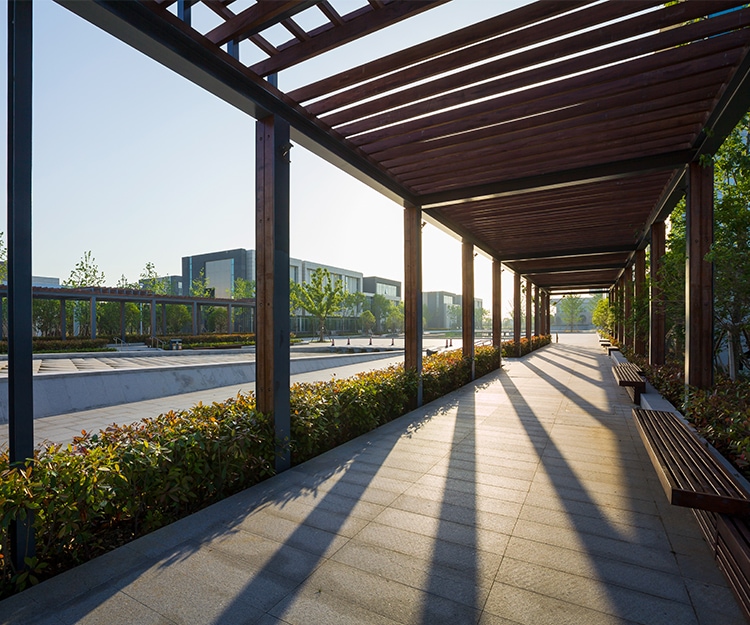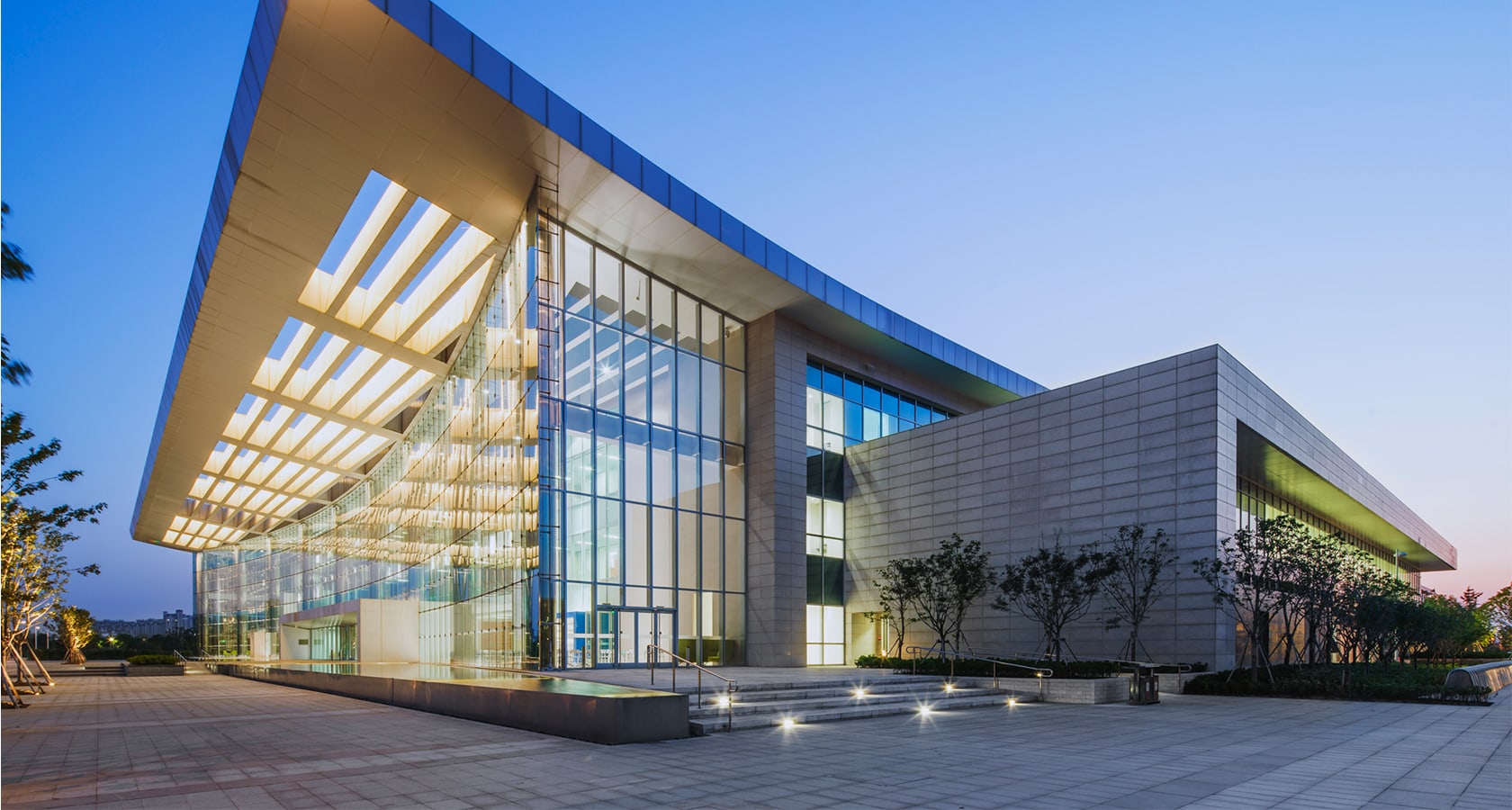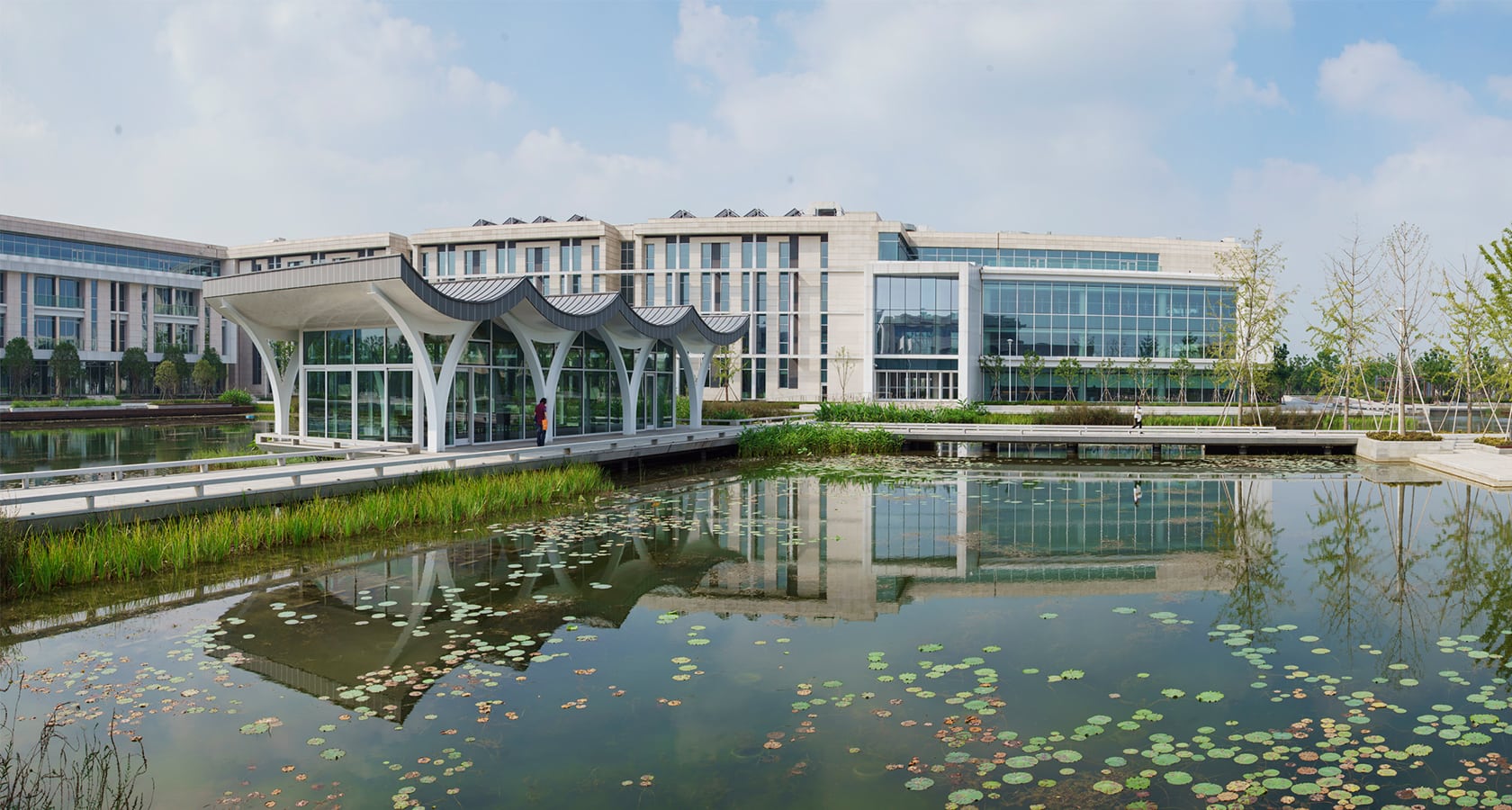Kunshan, PRC
Duke University Kunshan Campus
A World-Class Learning Environment Anchored in Water Conservation
status
Completed 2014
client
City of Kunshan
expertise
Education
services
Landscape Architecture, Civil Engineering

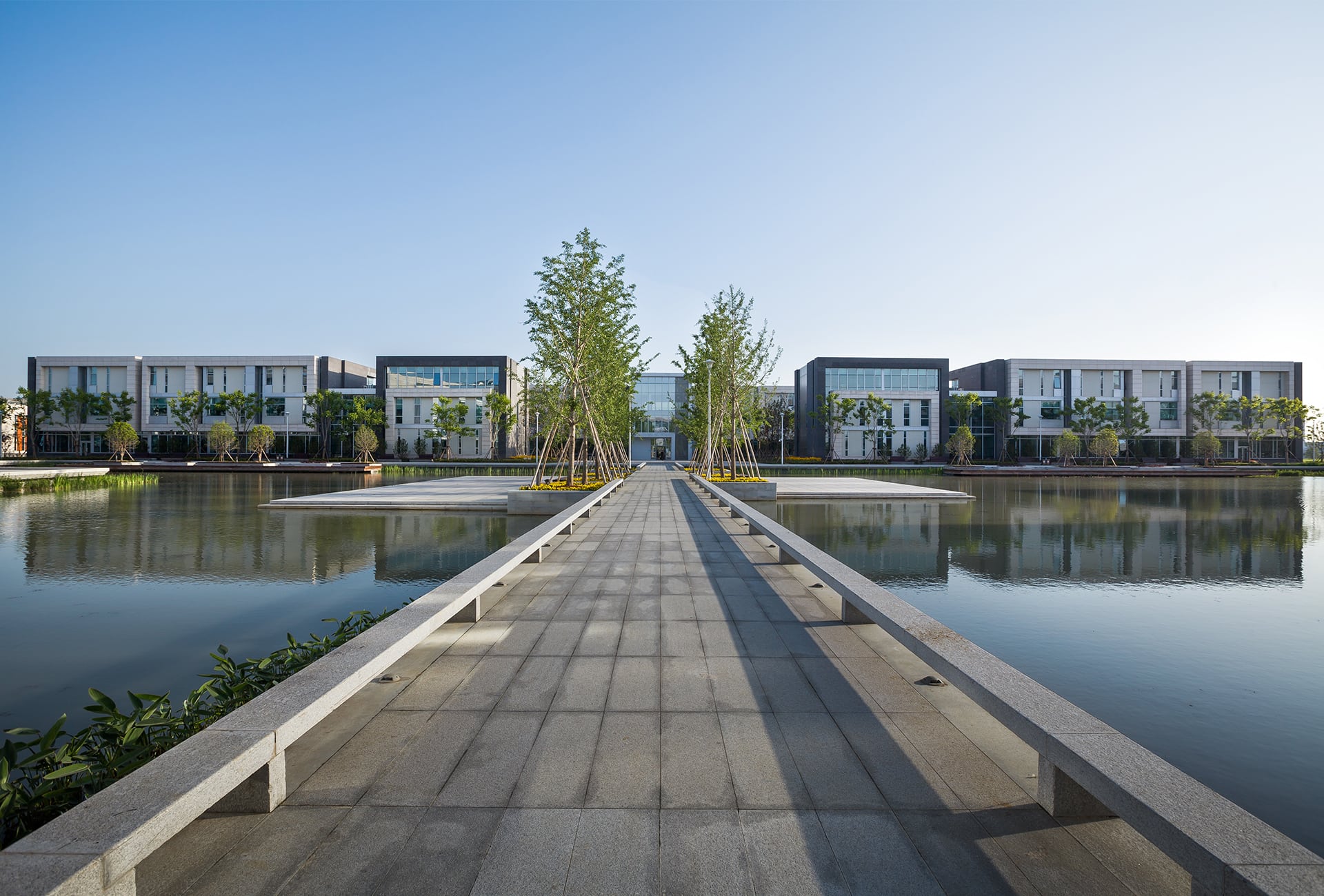
An International Model for Sustainable Campus Design
Duke Kunshan is a catalyst project for the region, proving that stormwater management on a global campus is not just possible, but a cultural, educational, and aesthetic asset.
Duke University is expanding their global reach by developing Duke Kunshan University, a 200-acre global campus in Kunshan, a city in the Jiangsu province of eastern China. Through an intensive international design competition, LandDesign — in collaboration with Gensler and Futurepolis — was selected to provide landscape architecture and civil engineering services for Phase 1 of the campus development, which includes an academic building, a 200-bed dormitory, a conference center and hotel, a faculty residence, and an administration building on 30 acres. The team was awarded the project with its innovative water-based design concept, which draws on the region’s water-town culture to provide sustainable stormwater solutions and educational opportunities. The global design team worked in tandem to conceptualize, design, and implement Duke University’s Kunshan campus with the goal to respect the region’s culture, provide a unique space for collaborative learning, and integrate sustainable design features that manage on-site stormwater and control water levels.
A Chinese-American partnership of Duke University and Wuhan University, Duke Kunshan University campus is a world-leading model of sustainable development, blending traditional Chinese elements with advanced technology to address flooding challenges of the region. Recently, the campus was recognized as part of China’s Sponge City initiative, an urban water management program aimed at promoting development practices that treat and purify rainwater on-site and curb flooding risks. Duke Kunshan’s success has led to positive feedback from the community regarding the Sponge City Method, leading to the design and construction of other Sponge City projects in the City of Kunshan.
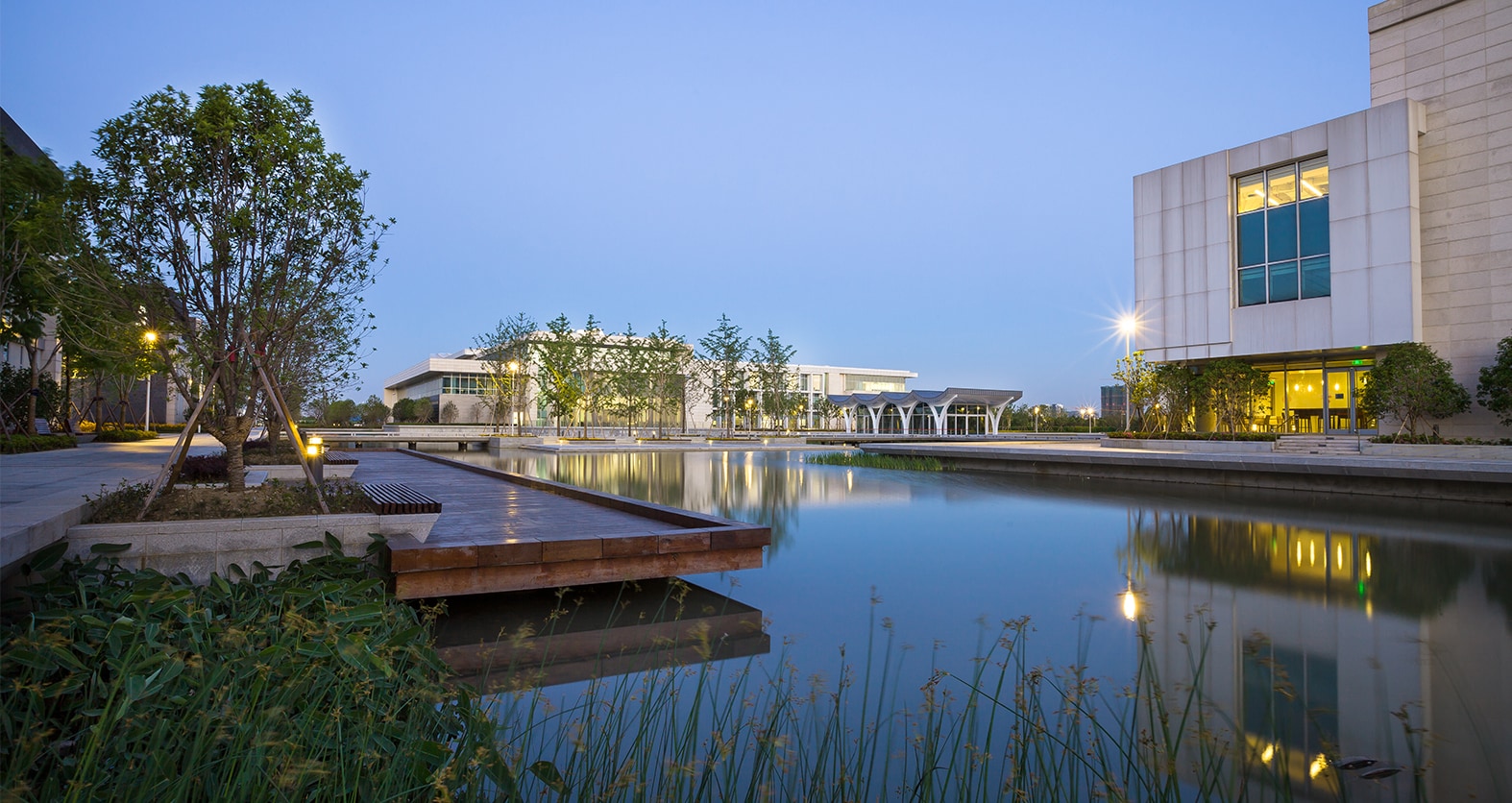
Water is embedded in the culture of the Kunshan region — utilized as a means of transportation, a visual element, and a civic gathering space. Designed to capture the spirit of a traditional Kunshan water-town, water is used as a design theme throughout the campus, providing the backdrop for an interactive learning experience and the constant exchange of ideas between professors and students. Given the plurality of learning styles, outdoor public spaces on the campus are positioned to become extensions of traditional classrooms. Plazas, amphitheaters, an open-air teahouse, and open corridors are suitable for various uses like social gatherings, study, and leisure.
A Sought-Out Education Experience
In August 2018, the Duke Kunshan campus welcomed its inaugural undergraduate class of over 250 students from 27 countries .
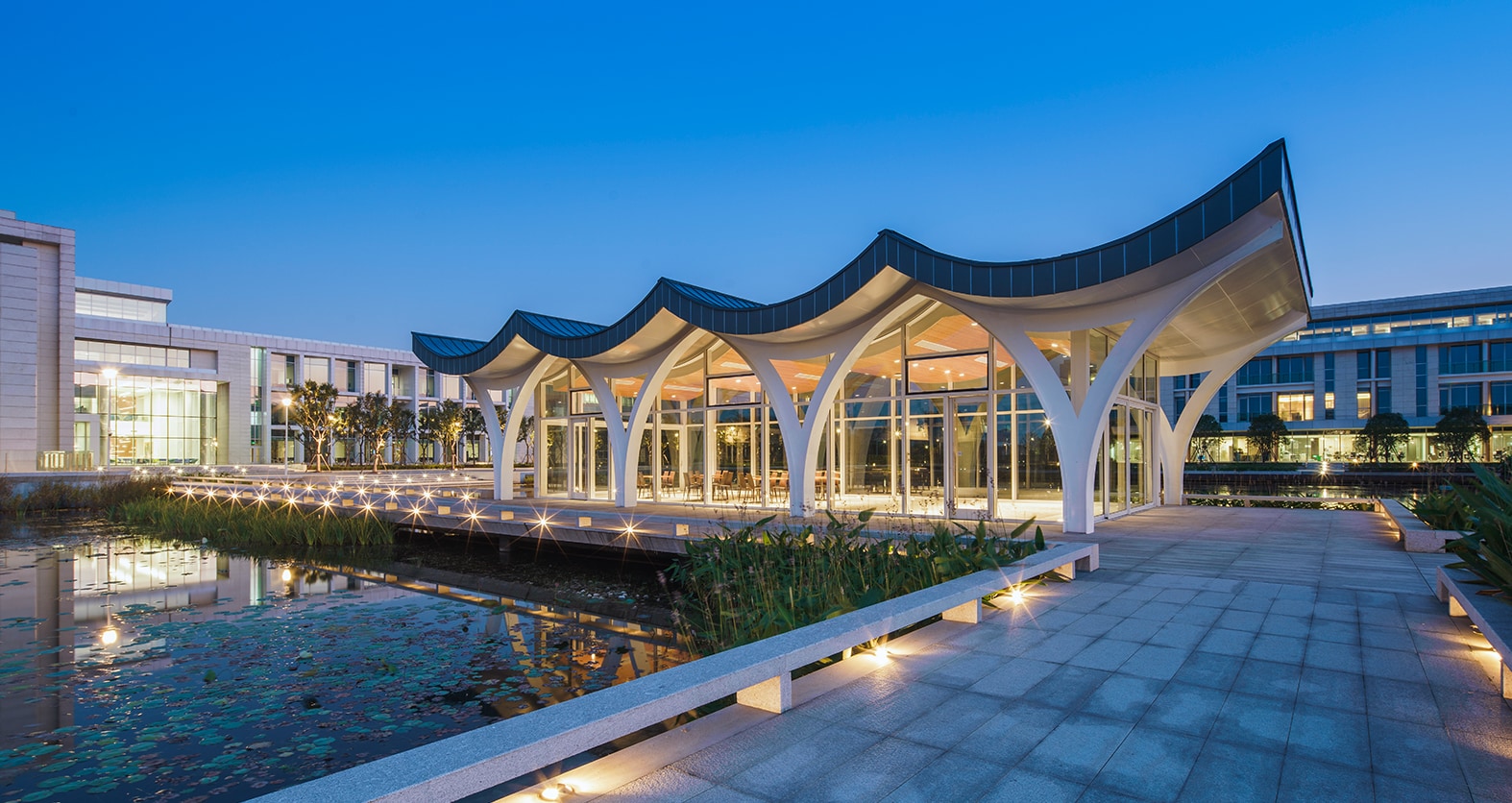
China is rapidly urbanizing due to population growth, making stormwater management more important than ever as cities face urban flooding and water quality issues. The design team was tasked with addressing the region’s challenges of heavy rainfall and urban flooding to elevate the overall campus experience and create a sustainable and tranquil learning environment. The five-building complex is organized around a four-acre man-made lake and connected by pedestrian bridges skimming the water’s surface. At the center of the lake is a terraced plaza — positioning community and informal exchange at the heart of the campus. The terrace is designed to accommodate the region’s fluctuating water levels, allowing portions of the gathering space to be submerged in the summer during peak rainfall periods and revealed during lower rainfall periods, which coincide with peak student attendance and space demand.
Journey to Water Purification
The site’s water infiltration system captures 90% of stormwater on-site to control flooding events, manage runoff, and treat water for reuse. The purified rainwater is used in the campus’ irrigation system, saving Duke Kunshan about 2,600 gallons of water each day and eliminating potable water use for landscaping. The entire water filtration system serves as an ecological education lab, re-imagining how the physical environment contributes to intellectual advancement
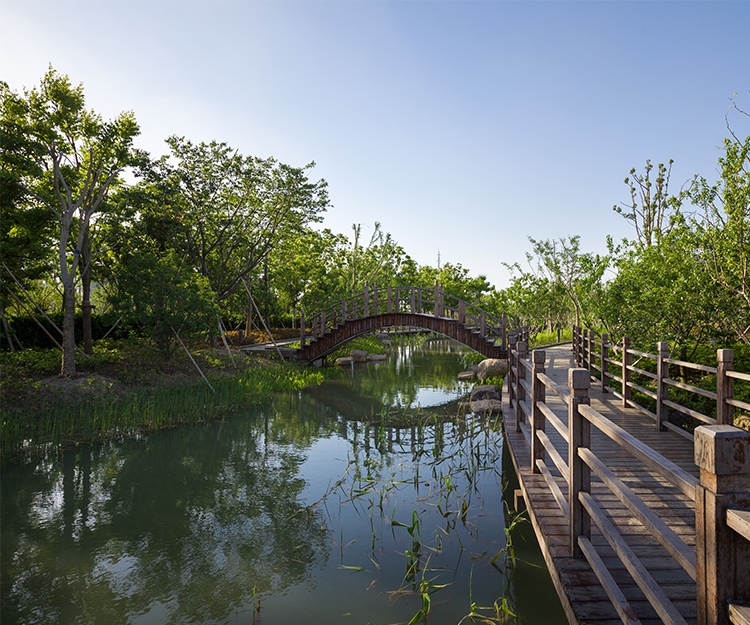
Water Conservation on a Global Campus
Underneath the aesthetic and functional design of these spaces lies a complex and balanced stormwater management system that includes point source water filtration, roof gardens, rain gardens, living water gardens, gray water capture, and aquatic habitat creation.
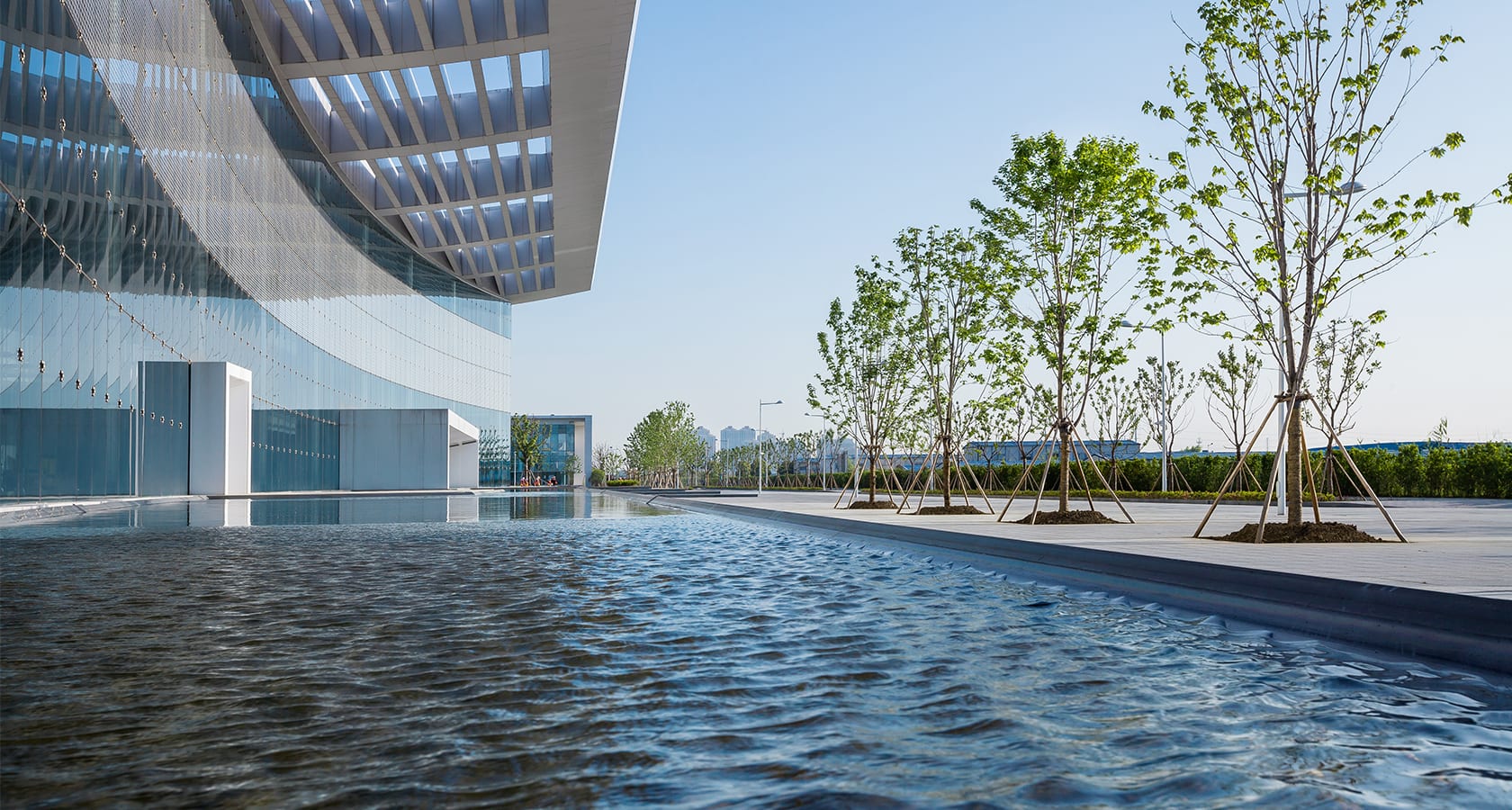
Water Conservation on a Global Campus
Underneath the aesthetic and functional design of these spaces lies a complex and balanced stormwater management system that includes point source water filtration, roof gardens, rain gardens, living water gardens, gray water capture, and aquatic habitat creation.
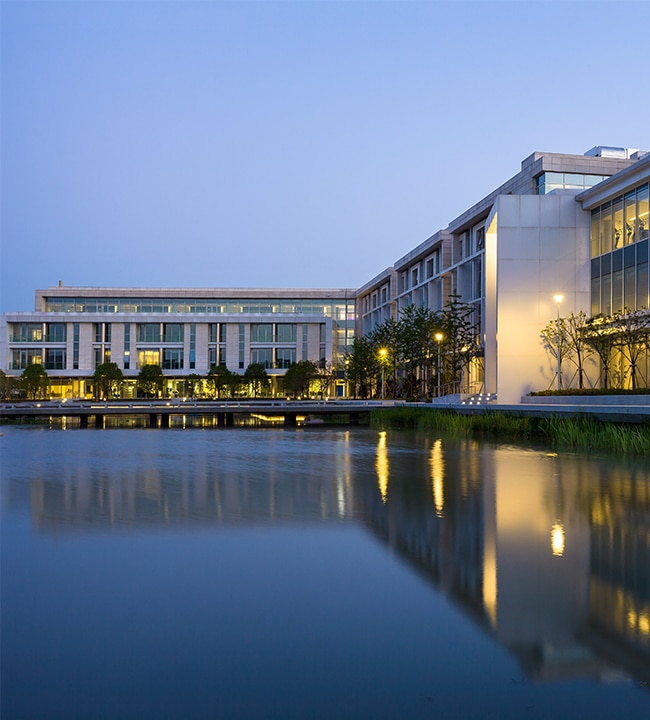
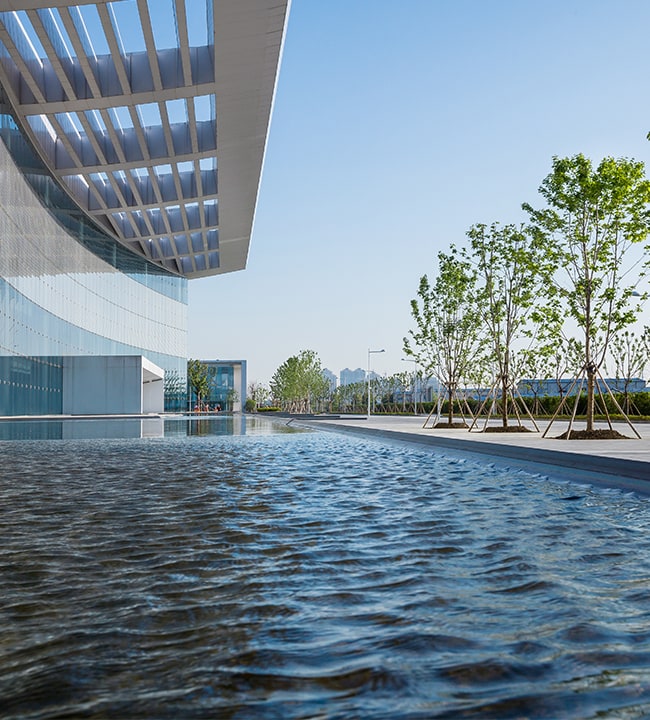
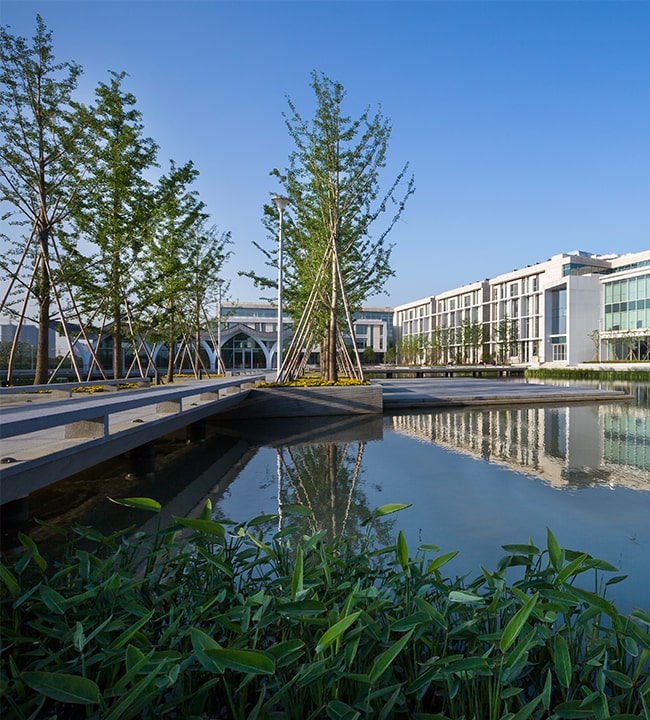
Physical
Embrace the region’s natural and cultural context to link campus buildings and common spaces
Functional
Manage on-site stormwater and control water levels through ecological design and creative problem solving
Social
Provide flexible public spaces that enhance the student experience and encourage interdisciplinary exchange

Physical
Embrace the region’s natural and cultural context to link campus buildings and common spaces

Functional
Manage on-site stormwater and control water levels through ecological design and creative problem solving

Social
Provide flexible public spaces that enhance the student experience and encourage interdisciplinary exchange
Sustainably Driven Design
Duke Kunshan University is China’s first Leadership in Energy and Environmental Design (LEED) certified campus, equipped with two LEED NC Gold and three LEED NC Silver buildings.
Immersive Education
A series of outdoor classrooms are strategically placed along the central lake to create a seamless transition between indoor and outdoor learning. By placing the outdoor classrooms near the water, the campus becomes infused with an overall feeling of peace and serenity–creating a natural place for collaboration, study, and reflection.
